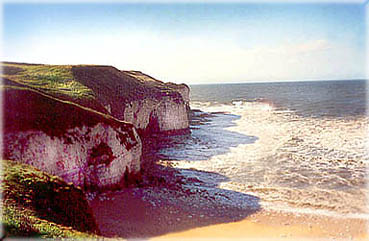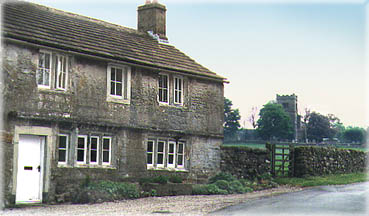OCTOBER 2000
Tom’s wife, Rosemary, with whom I was chatting recently in the Princess, said that she finds autumn profoundly depressing – the dark evenings, colder mornings, leaves falling and general decay. I’ve never felt like that about Keats’ ‘season of mists and mellow fruitfulness’. The colours of the leaves - the horse chestnuts turning first followed by the rest - the nuts and berries, the mists in the valleys, the smell of garden fires and the effect of the first frosts are often spectacular and by the time the summer is coming to an end I for one have had enough of the heat. Autumn steadily progresses marked by the fixed points in the calendar like Michaelmas, Hallowe’en, Bonfire Night, Remembrance Day and the start of Advent. There are also lesser-known dates like Trafalgar Day, Devil’s Blackberry Day and Stir Up Sunday. I find autumn a pleasant time and as it finishes there is the excitement of the run-up to Christmas. It’s January and February that are a bit miserable.
|
|
For
me autumn begins with the Last Night of the Proms. I went to it twice at the
Albert Hall when I was a student but nowadays I have to content myself with
watching it on television. It was once again this year that strange, largely
ironic, partly real and hugely eccentric celebration of being British. The
flags of England, Scotland and Wales (and of some other nations as well –
and why not?) were waved together with, of course, that of the Union. The
crowd as usual heartily sang Land of Hope and Glory, Rule Britannia (and an
encore) and Jerusalem. We were sorry when the fat lady sang (literally)
because it was then, of course, nearly over. |
At
this time of year my family always remembers our visit to New England in
October 1992. Although the boys were then only six and four, we packed so much
into a most enjoyable week. Images and impressions are seared in our memories
for ever – the brilliant light at Cape Cod, the breakfasts in Provincetown,
the colours of the leaves in the sunshine in the Berkshires, the Red Lion Inn
at Stockbridge (what a lovely hotel), the houses decorated for Hallowe’en
and the warmth of the American people - like the courier on a tour of Boston
when he realised that we were English. My love affair with America and things
American began years earlier when I visited California. But that’s another
story.
|
|
In late September at Filey on the Yorkshire coast a festival celebrated the Battle of Flamborough Head in 1779. This was, unusually for a celebration, and unusually for the British Navy, a resounding defeat. But, as they say, time heals. John Paul Jones, sometimes known as the Father of the US Navy, gave the British a real thrashing. Supported by the French, who used the American Revolution as an opportunity to take advantage of Britain’s problems, Jones sighted 41 sailing ships in convoy supported by an armed frigate and a sloop off Flamborough Head. A battle took place at night illuminated by a huge harvest moon and the populations of Filey and Bridlington stood on the shore watching the show. |
| At one point, before Jones prevailed, when the British appeared to be winning, the British captain asked Jones whether he wished to continue the fight. Jones replied ‘I have not yet begun to fight’. Though at the time Jones was condemned by the British as a thug and a pirate, he treated his prisoners well and in due course they were repatriated. To Jones’s disbelief, those in charge of the British defeat were treated as heroes and honoured. That’s how we do things in Britain. |
Flamborough Head |
.
Also
last month we experienced the Great Fuel Protest. In the tradition of the
Peasants’ Revolt, Hampden’s refusal to pay Ship Money before the English
Civil War and the Boston Tea Party, this was a protest about tax. Petrol in
the UK is now £4 a gallon, more than 75% of which is duty. The price has
risen 40% as a result principally of rises in tax since the Labour government
was formed three years ago. Hauliers, farmers and small businessmen blockaded
the fuel depots at the weekend and in no time the economy was close to
collapse. By Tuesday there was virtually no petrol in Yorkshire. Panic buying
began to empty the supermarkets of essentials. You knew how serious it was
when the police in Hull advised Blair not to have dinner in John Prescott’s
favourite Chinese restaurant because they could not guarantee his safety.
(I’ve often felt like that about Chinese restaurants myself).
Seemingly
there was no violence or real intimidation. The public was inconvenienced but
overwhelmingly supported the protestors. The Prime Minister thrashed about
like a fish on the deck of a ship. The protestors called it off before anyone
was hurt. It was all rather bizarre. But the British have changed in a
generation. They don’t simply do as they’re told any more. Nor do they
always believe what they’re told. As Claud Cockburn once said: ‘never
believe anything until it is officially denied’.
As
was said on Channel 4 News, for a week Britain was quieter, cleaner and safer.
I was reminded of a few years ago when as a result of an accident in Apperley
Lane, the police closed the roads in our part of Rawdon for most of the day.
It was a lovely sunny day. It was so quiet. No cars, no trucks, no buses. You
could hear the birds sing. People stopped and talked in the road. Children
could play safely. It was wonderful while it lasted. It was, of course, as it
was when the houses in the area were built in the nineteenth century. The car.
We nowadays can’t manage without it but I can understand the view of those
who hate it.
|
Rylstone - home to the famous and delightful naked Women’s Institute Calendar Girls |
Rylstone is between Skipton and Grassington. It’s an attractive village with, we find, some attractive residents. I was delighted to read in the Times that the revealing Ladies of Rylstone Women’s Institute Calendar is on sale in the bookshop in Concord, Massachusetts. We are indeed a global village. |
|





